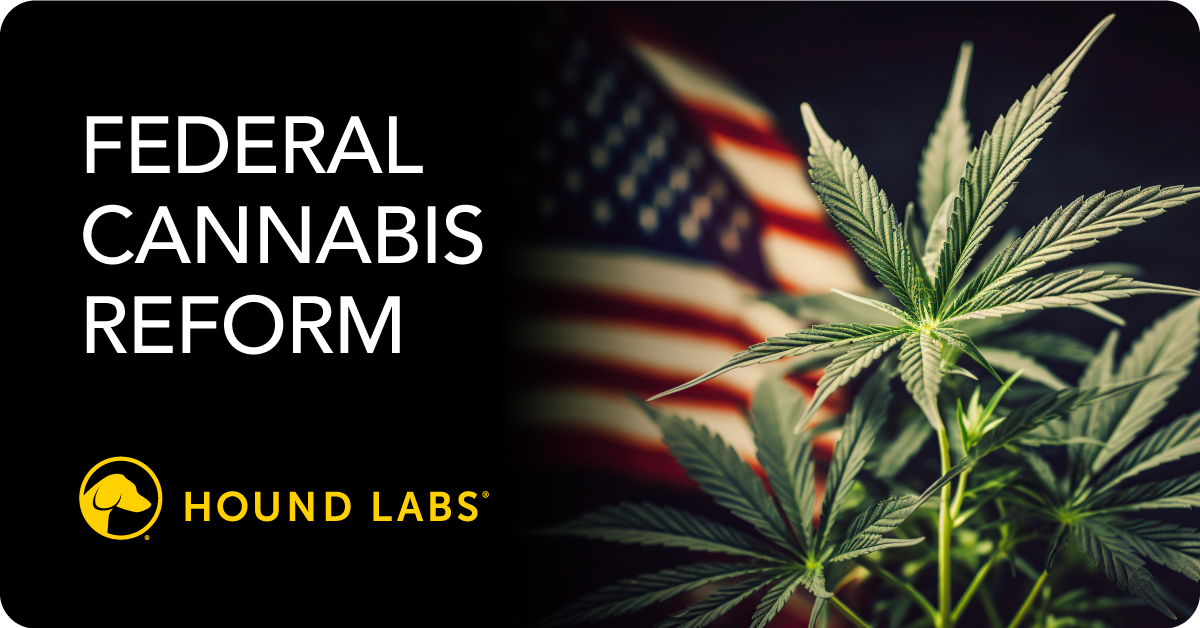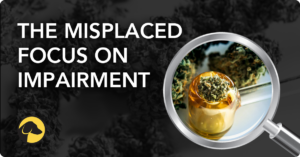
Federal Marijuana Rescheduling: The Employer Impact
On May 16th, the Biden administration announced another major milestone in the formal process to reschedule the federal drug designation for marijuana. The move would reclassify cannabis from Schedule I to Schedule III under the Controlled Substances Act, easing the designation cannabis has held for more than 50 years.
While the recommendation may take months to finalize, it’s widely anticipated that cannabis will be downgraded. If approved, cannabis would be considered an acceptable medical treatment and require a prescription. Regardless of any potential ruling, cannabis will remain a controlled, psychoactive, safety-impacting substance. Employers still need to, and have a right to, mitigate its risks in the workplace. However, with another pipeline to access marijuana, employers will likely have an additional layer of complexity to navigate within their drug testing programs.
THE PROCESS OF RESCHEDULING MARIJUANA
The process to reschedule cannabis really began in late 2022 when President Biden laid out his plan to correct what he calls a “failed approach” to addressing marijuana. At that time, he requested the U.S. Department of Health and Human Services (HHS) initiate a review of the scheduling of cannabis under federal law. Following that review, in late 2023, HHS advised the Drug Enforcement Administration to reclassify cannabis as a lower-level Schedule III drug. This month, the Justice Department officially proposed the policy move to ease restrictions on marijuana.
Since the early 1970s, cannabis has been a Schedule I drug at the federal level, which puts it in the same category as LSD and heroin, meaning it has a “high potential for abuse” and “no currently accepted medical use.” If cannabis is reclassified as a Schedule III drug, it will be considered an acceptable medical treatment somewhat akin to Tylenol with Codeine®. The reclassification status will not legalize the sale of marijuana or its products for recreational use at the state level. Sales will remain a state-led decision, but it will allow cannabis to be prescribed by a medical doctor.
WHY RESCHEDULE MARIJUANA
President Biden says the move to reclassify cannabis is a monumental step “toward reversing longstanding inequities.” The classification change may improve eligibility for those seeking access to public housing, immigrant and non-immigrant visas, and firearm possession. It could also remove some barriers to federal employment and military service for those who lawfully use medical marijuana. Clinically, cannabis reclassification is expected to facilitate research on the drug’s medical benefits; historically, research has primarily focused on determining harm that may come from cannabis use.
IMPACTS OF RESCHEDULING MARIJUANA
However, critics of the move, including some former DEA officials, say they are concerned about the potential risks that come with granting more access to a drug with known psychoactive effects.
There may be cause for concern, too. In the decade leading up to the rescheduling recommendation, cannabis use has increased but so have positive marijuana drug test results and post-accident marijuana positivity. According to the most recent Quest Diagnostics Drug Testing Index™, in 2023, 4.5% of tests were positive for marijuana in the general U.S. workforce, the highest figure for any drug; a continuation of year-over-year increases that have been reported for more than a decade. Meanwhile, post-accident marijuana positivity in urine drug tests within the general U.S. workforce reached a new nine-year peak of 7.5%. That’s a more than 114% increase as compared to positivity from 2015 (3.5%), as reported by Quest.
Expanding cannabis legalization at the state level is having an impact, too. More than 75% of states have legalized cannabis in some form, whether for medical or recreational purposes, or both. States that have legalized recreational marijuana continue to see the highest positivity rates for the drug. According to Quest, recreationally legalized states have a positivity rate nearly 76% higher than in states where marijuana is neither recreationally nor medically legal (5.8 vs. 3.3%).
ADJUSTING DRUG TESTING POLICIES TO ACCOUNT FOR CHANGE
While several studies indicate most Americans think cannabis should be legal, employers may need to adjust their workplace drug testing programs and policies if the federal government reclassifies cannabis and further widens access.
Here are three adjustments employers can make now to be prepared for this change:
Update drug testing policies to focus on deterring workday cannabis use. The goal of a drug testing policy should be zero-percent positivity, not zero-tolerance. If you need assistance with updating your policy with deterrence-based language, please consult with legal counsel. If you are already a Hound Labs client, our employment law partner, Ogletree Deakins, offers a complementary 1-hour policy consultation. Take advantage of this consultation to learn how to incorporate breath testing and deterrence-based language into your drug testing policy.
Focus on continuous screening throughout an employee’s tenure. Historically, drug testing programs have relied heavily on pre-employment screening to vet job candidates. However, if applied solely during the pre-employment stage, this drug testing model provides little long-term incentive to deter marijuana use among employees after they’re hired. Instead, a post-hire drug testing program provides a strategy that deters workday drug use and drives additional safety and retention benefits.
Leverage recent use testing technology to accurately and objectively isolate cannabis use connected to the workday. Cannabis breath testing isolates detection to use that occurred within 2-3 hours of the test. The advancement of recent use cannabis breath testing provides an ideal solution to account for changing laws, shifting societal views, and increasing cannabis use among employees.
WHAT COMES AFTER MARIJUANA RESCHEDULING?
Before a final determination on cannabis rescheduling, there will be a 60-day period of public comment and administrative review. Even if cannabis is rescheduled, this does not mean it is decriminalized. Congress would need to completely remove the drug from the Controlled Substances Act to make that happen.
Staying on top of the evolving regulatory landscape is a challenge but we are here to help. Connect with our team if you have any questions about how to adjust your cannabis testing policy to account for marijuana reclassification.

May 23, 2024
By TRICIA O'CONNOR
Director of Content + Brand Strategy
Share











